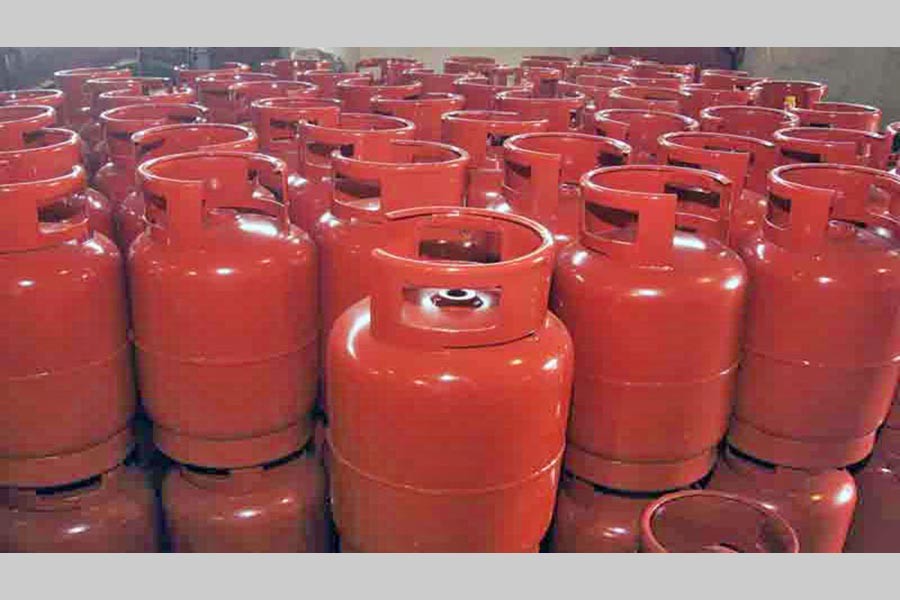
Published :
Updated :

A surge in the consumption of liquefied petroleum gas (LPG) has naturally been witnessed, following the government ban on gas connection to households in 2013. The market has boomed over the years. But lack of regulatory measures has led it to go unabated not just in errant pricing of the LPG cylinders but shockingly in the maintenance of quality as well as the quantity. Since this cooking gas is currently being used almost all over the country, factors associated with its use in the absence of regulatory mechanism calls for immediate attention of the authorities concerned.
Until 2013, the country's annual LPG consumption was 80,000-90,000 tonnes, of which state-run oil companies under the Bangladesh Petroleum Corporation (BPC) supplied approximately 20,000 tonnes. The rest of the demand was met by private companies. The demand has soared many times over the years and last year's consumption stood at more than 4,00,000 tonnes. Reports have it that the country has 40 million households and commercial units that require cooking gas, but natural gas supplied through pipelines meets only 3.7 million tonnes. This clearly explains the surge in the demand and consumption of LPG. Flat owners and tenants in residential buildings and restaurants in Dhaka, Mymensingh and Chittagong divisions have no choice but to use LPG for cooking because of the non-availability natural gas supplied through pipes.
There is in fact nothing wrong with LPG, mainly for cooking purposes. There are many countries including oil and gas-rich countries where instead of pipeline gas, LPG is considered a good substitute. For this, the key requirement is a well-coordinated policy that can not only take care of the quality and pricing of the cylinders, but also ensure smooth supply, and provide opportunities to small businesses by way of engaging them in the distribution chain. But lack of regulation has led the thriving LPG business go haywire. There are evidences of arbitrary pricing too. It is alleged that some local 'syndicates' have emerged that offer people LPG at cheaper rates by bottling the cooking gas in makeshift arrangements. This is not only harmful for the market but also a serious threat to public safety. To do away with the safety hazards as well as remove the prevailing difficulties such as pricing of the cylinders and occasional scarcity, the authorities concerned need to sit with the stakeholders in order to reach a consensus on disciplining the sector.
In fact, a well devised LPG policy and implementation of the same can be found to be more functionally efficient than pipeline gas. While it can, on the one hand, reduce the reliance on pipeline gas which is far less adequate, the state coffer, on the other, can be spared of the huge expenses required for supplying gas through pipeline. It is well known that with pipeline gas supplied to households-- a populist policy pursued by successive governments-- the country has eroded itself of huge quantities of natural gas by sheer wastage. Now that the LPG market is booming thanks to the initiative of the private sector, it is important to put in place an effective and efficient regulatory policy in order to ensure that the system benefits all concerned.


 For all latest news, follow The Financial Express Google News channel.
For all latest news, follow The Financial Express Google News channel.